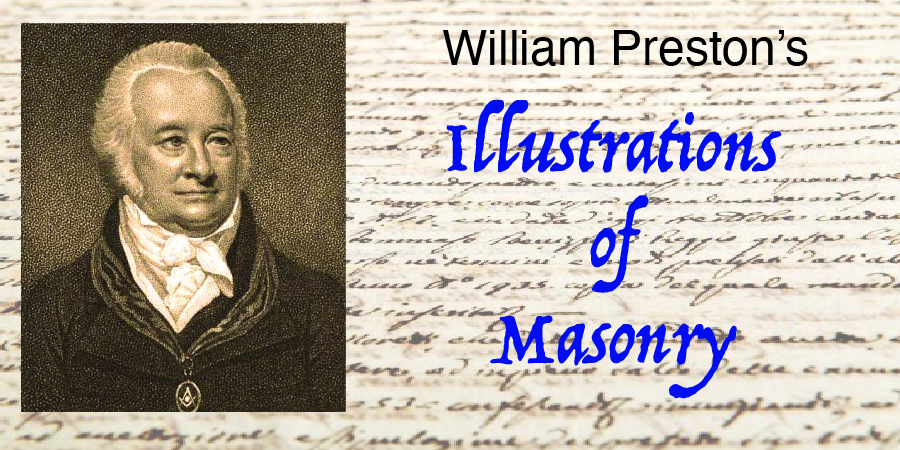
A Resource for Study of Illustrations of Masonry
The most used lectures (monitorial) in Masonic Lodges in the United States of America and many parts of the world are those written by William Preston.
This site is dedicated to collecting the various editions for study by the interested Mason or researcher. From the very first edition in 1772, the lectures as devised by Preston had been popular in Masonic Lodges throughout the world. So much so that they are the standard in many jurisdictions.
By examing the various editions and the changes made by Preston and others to the original work, we can get a glimpse into how Masonry was evolving during this important time.
Masonry is my theme. During many ages, and in many different countries, has it flourished
— W.B. William Preston (Illustrations of Masonry 1772)
William Preston's Lectures
Preston’s Illustrations of Masonry volumes are often mistaken for the actual lecture work that Preston developed. If fact, there are very few copies of his esoteric lectures left and those are enciphered.
The Preston books provided for the instruction were entitled Syllabus, each Lecture being divided into Sections and Clauses. Generally, of pocket size they had blank sheets interleaved in the print. The Lectures were catechetical and the printed matter consists only of the questions given in a manner so highly abbreviated that they would convey little information to the un¬ initiated. The Syllabus, as printed, was more in the nature of an aide-memoire for the Pre¬ceptor.
In the late 1960’s and early 1970’s, Brother P. R. James meticulously deciphered the lectures and published them in Ars Quatuor Coronati, the transactions of the Quatuor Coronati Lodge.
Editions by Year(PDF)
Compare Editions
Preston’s work went through many editions both in his lifetime and after his passing. By using the button below you will be able to compare any two versions of Preston’s work or compare any version of Preston’s work against the Nebraska Monitorial work.